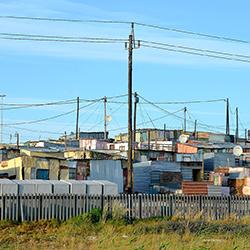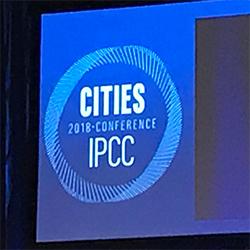The first ever United Nations Habitat Assembly starts today in Nairobi, Kenya. Over the next few days, people from governments, UN agencies, NGOs, academia and others will discuss policies and strategies for planning and governance of cities around the world.
The main theme of the conference is “Innovation for Better Quality of Life in Cities and Communities” and the sub-theme is “Accelerating the Implementation of the New Urban Agenda”. The theme is most welcome and necessary. The initial implementation of the New Urban Agenda – as well as of Agenda 2030 and the Sustainable Development Goals – seems to have lost some of its initial momentum and enthusiastic support.
Mistra Urban Futures has been working with the SDGs and the “Realising Just Cities” framework since 2014 when we undertook our pilot study on the then proposed targets and indicators of SDG 11, the “Urban Goal”. Several articles have been published, see e.g. Developing and Testing the Urban Sustainable Development Goal’s Targets and Indicators by David Simon and colleagues in 2015. More recently, a more detailed assessment has been published of how 7 diverse cities where we work on 4 continents are engaging with and addressing the goals, targets and indicators in their own local and national contexts. See Adapting the Sustainable Development Goals and the New Urban Agenda to the city level: Initial reflections from a comparative research project, published this year by Sandra Valencia and David Simon with co-authors in all seven cities.
Time is running out
The implementation of the SDGs and the New Urban Agenda is urgent. The eleven years remaining until the 2030 deadline is a very brief period to implement the far-reaching changes required for substantively greater urban sustainability.
Mistra Urban Futures is one of many voices emphasising this urgency and the need to develop and facilitate the collaboration and the approach of co-production of knowledge to create the legitimacy and capacity for change and transformation.
In fact, we raised this issue at the High Level Forum at the UN General Assembly in September 2017 (see video), urging the UN agencies to work on the efficiency of the collaborative system. This needs to be as smooth as possible, if the limited time we have got is to be spent wisely.
Lessons learned
Mistra Urban Futures has developed the co-production and transdisciplinary processes, including governments, universities, civil society and industry, through a range of collaborative and comparative projects with our platforms and partners in four continents.
Without participation from all parts of society, the goals might not be reached in time – or worse, not at all.
This approach to sustainable development issues has been successful, but not without challenges. Our experiences so far has been described in the article The challenges of transdisciplinary knowledge production: from unilocal to comparative research, published in late 2018. A book with more comprehensive lessons learned from the four years of comparative transdisciplinary research will be published – open access, free for download – by Policy Press later this year, as a follow up to the Rethinking Sustainable Cities book (published 2016, also open access - with 40-page summaries available for download in Swedish, English, Spanish and Hindi).
We also partnered with Future Earth and the Stockholm Resilience Centre in producing the landmark volume, Urban Planet (Cambridge University Press, 2018), which is also available on Open Access. Each of the 16 substantive chapters is co-authored by scholars from diverse disciplines as well as professionals in key international agencies and other institutions; while 38 ‘Provocations from Practice’ are authored by one or more professionals and those from other urban communities of practice, who engage critically with the themes and challenges. The key message from this worldwide, cross-scale analysis – which chimes directly with Mistra Urban Futures’ ‘Realising Just Cities’ framework – is that if we are to overcome the major challenges of sustainability on our urban planet, we need to undertake an urgent and large-scale reinvention of how we live together, focused on inclusivity and urban justice. This and some of the practical steps identified should guide the deliberations of those gathered in Nairobi this week.
So, in summary, we highlight the urgency of
- The need to pro-actively engage with and facilitate the understanding of the different rationalities of different actors (given the sense of urgency and need for much more of collaboration – as stated over and over again in the various global agreements);
- The imperative of a focus on inclusivity and justice or fairness to underpin concerted efforts to make our world of towns and cities substantively more sustainable and resilient;
- The corresponding idea of regarding ‘communication’ in a wide sense as part of the project and development – not as an additional task, but as something integrated in every process.
David Simon and Jan Riise, 27 May 2019
Photo by Jan Riise: The New Urban Agenda was presented in Quito, Ecuador, at Habitat III in October 2016.

This work is licensed under a Creative Commons Attribution-NonCommercial 4.0 International License.








